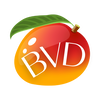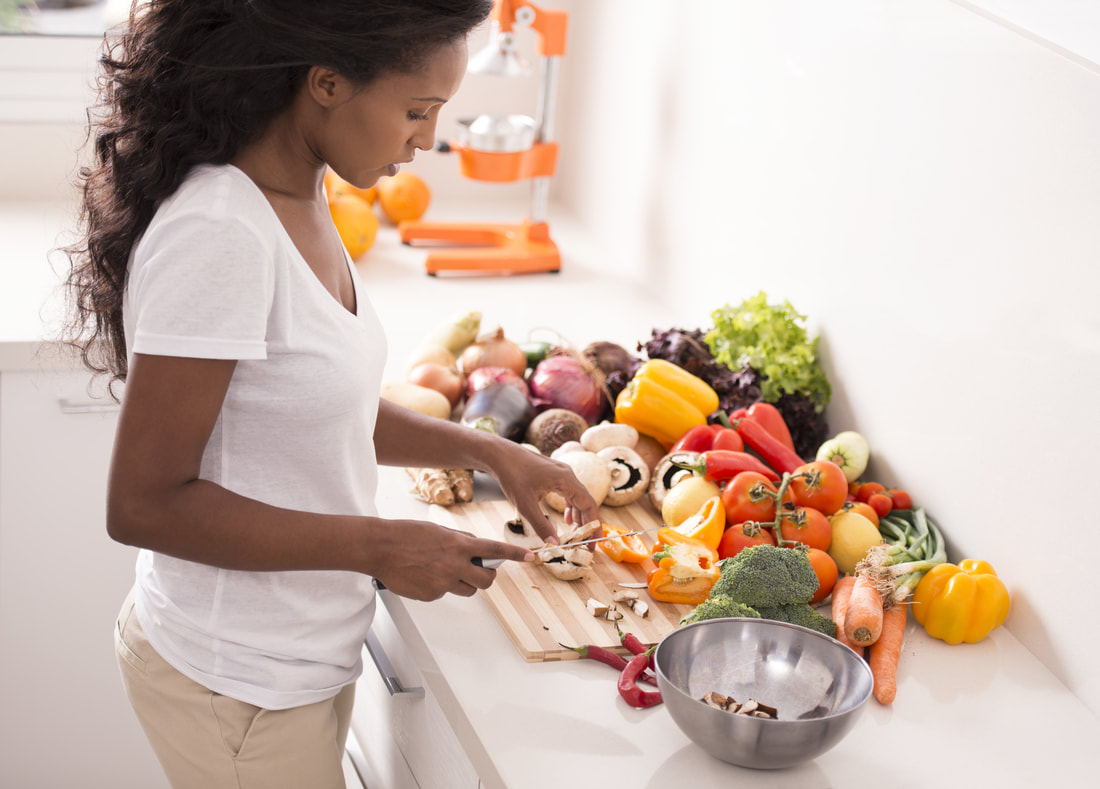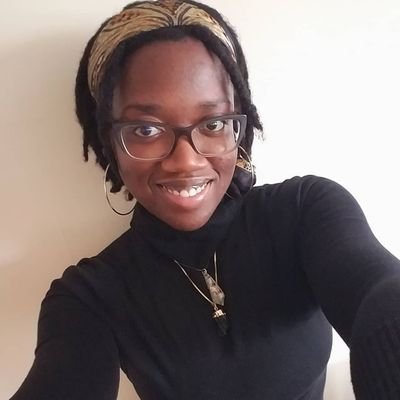|
There's one thing I know for sure that I didn't know before, and it's that I will be a vegan for the rest of my life. I know It's a pretty strong statement to make, especially for a Pisces like me who hates boundaries and tries to live by the motto "never say never", but I now know too much to waver in my convictions about this. What started out as an attempt to calm my debilitating monthly menstrual cramps became an entire lifestyle for me. For the first time in my life, I can say that my beliefs and values truly align with my actions.
However, this isn't the first time I've tried the whole vegan thing, and the last time didn't go very well. After spending three years as a pescetarian and about half a year as a vegetarian, I decided to try going all the way vegan, but my priorities and convictions just weren't strong enough to sustain the lifestyle. I lasted about a couple months before I jumped off the wagon. Looking back, I realize that I made a few mistakes that made going vegan a lot harder than it had to be. I Didn't Do Enough Research My first attempt at going vegan began with watching the documentary Forks Over Knives. Unfortunately, that was pretty much the beginning and the end of the research that I actually did. While documentaries are a great source of information, they're limited in how much information they can give in a short span of time. Because of this, you may learn a few tidbits about how and why you should make a change, but sometimes it isn't substantial enough to actually sustain the new lifestyle. Further research is almost always required. This can be difficult because the internet is chock full of information, and a lot of it can be contradictory and confusing, especially when it comes to nutrition. There are hundreds of nutrition studies published every year, and the absolute majority of them never end up in mainstream media. To complicate things further, a lot of what does end up in mainstream media has been misunderstood, misconstrued, or completely misstated after being filtered through editors and journalists who oftentimes don't have the scientific knowledge necessary to present the facts as they are. So when the mainstream media was abuzz with the news that "butter is back" and "saturated fat isn't that bad", it was easy to fall for it. What I didn't take into account was the fact that a lot of what comes through mainstream media only reaches us because it's been paid for by corporations. What is presented to us as a health fact isn't always fact. This is not only confusing, it's damaging, because the reaction for most people is to throw up their hands in frustration and just give up on the notion of making any change at all. This is what I did, and many years down the line, I can say, it was a huge mistake. These days, I find Nutritionfacts.org to be one of the best resources available, and no, I am not being paid to promote this site. It's a volunteer-run donation-based organization that parses through all the available nutrition studies in order to reach more sound conclusions about what's best for us nutritionally. The work is thorough and transparent, and it's been a major help for me in deciding how to shape my dietary choices. I Didn't Prepare & Plan Well Enough The biggest complaint I hear from people when they first go vegan is "I don't know what to eat". I felt this way a lot during my first attempt at going vegan, especially since this was in the days before Instagram popularized food porn. These days, however, it's much easier if you're willing to put in the effort. For most of us, eating never required any conscious effort. We would simply get a craving and then seek to fulfill it, oftentimes by running to the nearest fast food restaurant. This all changes once you decide to remove meat and dairy from your diet. The first thing you'll notice when looking at just about any standard menu is they put some form of meat or dairy (or both) in just about everything. You'll go from being able to eat the entire menu to only being able to eat the side salad, and it'll frustrate the hell out of you. And if this happens when you're in hangry mode? You're more than likely going to say "fuck it" and order the cheeseburger. However, the food you eat is worth thinking about because your body, your health, and your future are worth thinking about. So if that means reading restaurant menus before eating out, so be it. If that means looking for vegan restaurants or restaurants with vegan options, then do it. If that means choosing to eat before a gathering rather than hoping they have something you can eat, then do that. Happy Cow is a handy app that lets you find vegan food within a few miles of wherever you are, so the "work" really isn't that much work at all (and no, unfortunately they're not paying me either). I Didn't Cook Enough The reality is that while many restaurants are now getting hip to the game and adding vegan options to their menu, we still have a long way to go. That means that a lot of the time, you'll have to do the cooking yourself. I provided some tips for making cooking easier a few weeks ago in 10 Tips For Embracing A Vegan, Plant-Based Diet. The first time I went vegan, I did try cooking the meals I brought to work in order to make things simpler, but I ended up eating the same things over and over again, which bored the hell out of me. This time around, I've found that it helps to be willing to try cooking new vegetables, fruits, beans and grains that I've never cooked before. I continuously try to expand my repertoire so that I'm not bored with what I'm eating. I Didn't Seek Out Vegans Like Me I'm going to keep it real with you. The mainstream vegan movement, like most things mainstream, is a very White movement. It's great at understanding the oppression faced by animals, but historically poor at considering how other forms of oppression may inform the capabilities, choices and beliefs of others. Noble as the quest to save the animals may be, they aren't the only beings on this planet who have been subjected to systematic oppression. The lack of sensitivity to that fact undermines the movement by alienating Black people and other people of color who otherwise would be receptive to the message. I've written about veganism, systemic racism and the link to speciesism before. Fact of the matter is, while we're all human, people of different races are subjected to different life experiences. Oppressive systems of racial subjugation aside, there are also cultural differences that are reflected heavily in the foods that we're familiar with. The first time I went vegan, my Jamaican background came in handy, because I discovered that ital food was just as amazing as the rest of the Jamaican food I grew up with, just without all the animal products. Unfortunately, access to ital food was limited and access to a community that I could integrate myself into and utilize for assistance was even further limited. I needed a community of vegans that were like me, with people who could relate to the life I've lived, the struggles I've had and the foods I've grown up eating. Instagram is a great place for that these days. Seeing other vegans who are in similar circumstances affirms that I, too, can make it work. I Didn't Care About Animals Unfortunately, our own individual health isn't always important enough to us to keep us on the right path. Sometimes, we need multiple reasons to help us stick to major lifestyle changes. The first time, I didn't have that. My biggest concern the first time was honestly losing weight and getting healthier. This time around, however, I realize that the reasons to be vegan are much bigger than me. I've come to realize that we have to be more aware of where our food comes from. When we walk into a supermarket and pick up a pound of beef that has already been raised, slaughtered, butchered, "cleaned", packaged, and sold to us, we're mentally and emotionally distanced from the cruel reality behind the production of that meat. I could write long, graphic articles about the things that go on in slaughterhouses (and I probably will eventually), but you really should take a look for yourself. Spend some time on the Mercy for Animals website and learn more about what really happens to the animals that become the food that you eat. Most of us avoid this information not only because it's graphic, but because it triggers a deep empathy in us that is often accompanied by anger, frustration, guilt, and shame. However, this can't continue to be an excuse for turning away and pretending that it isn't happening. It won't change until we're willing to confront the truth and change ourselves. This time around, I did decide to look more into animal cruelty, and it was gut wrenching. I felt so much shame and guilt that I'd had a hand in contributing to such inhumane treatment of other living beings. I had moments where I couldn't do anything but cry. For most people, all it takes is one tasty-looking cheeseburger to forget about their quest for bodily health. But when you begin on the quest towards eradicating animal cruelty, that cheeseburger won't ever look the same again. I Didn't Understand The Connection Between Food Choices & The Environment As with the animals, I didn't understand the impact that my food choices were having on the environment. I was all for stemming climate change and reducing greenhouse gas emissions and all that, but I didn't understand that I was contributing to these problems with my lifestyle choices. I didn't understand that raising cattle for beef is a major contributor to climate change. I didn't fully understand that entire forests are being chopped down to plant crops to feed the animals being raised for food. I didn't fully understand that entire ecosystems are facing collapse as a result of these actions. I didn't fully understand that sea life was being fished out of existence. All so that I could eat my beef burgers, my bacon, and my sushi. This is what happens when supply must meet demand, and the sorry truth is that we're demanding too much. Cowspiracy, available on Netflix, is a great documentary on the link between animal agriculture and climate change. To be completely honest, it wasn't like I wasn't capable of understanding all of this before. I just never gave it the attention it deserved, because I knew it would require me to drastically change my ways, and I wasn't yet willing to change. I may not have been conscious of this at the time, but this was the truth. Hindsight is always 20/20, and I see with great clarity that I was being willfully ignorant. I'm saying this because I don't want other people to continue making that same mistake. I Wasn't Emotionally Ready As I wrote about a few weeks ago, it wasn't simply that I was enjoying my food too much to care about my health, or the animals, or the environment. I was in a lot of emotional pain, and food was my way of soothing it. I wasn't ready to truly change my habits because I wasn't ready to truly confront why I was eating the way I was eating in the first place. I wasn't ready to face my pain. Everyone is on their own particular life journey, and while I may envision a Utopian world where we're all eating healthy, vegan diets while playing with our animal friends, I know that it's just not that simple. Making major lifestyle changes calls for a lot of willpower and a lot of financial and emotional resources that many people just aren't in a position to give. So I ask everyone to just do their best. Stay aware and do your best, and when the opportunity comes to do a little better, do it. Inevitably, we're all going to have to take into account the way that our decisions and choices affect the lives and the world around us, but that change starts on the inside.
1 Comment
|
AuthorMy name is Nivea, but you can call me Niv. I'm an independent Plant-Based Nutrition & Fitness Coach hailing from the Bronx, NY. Archives
August 2021
Categories
All
|



 RSS Feed
RSS Feed